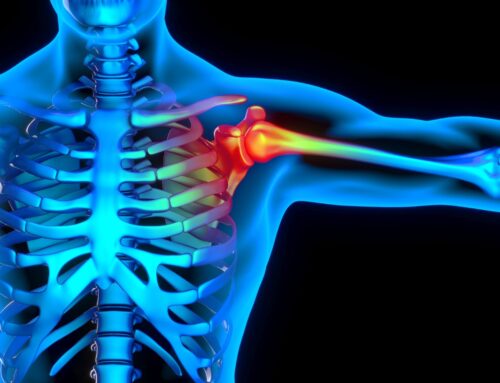Jaw pain can make eating your favorite meal difficult. It can leave you feeling achy and sore throughout your day. It can even pose difficult when talking! So, what gives?
While many might think jaw pain is solely a dental issue, the truth is far more complex. Your jaw is intricately connected to various parts of your body, including your neck and spine. This interconnectedness means that the source of your jaw pain might not be where you expect it to be.
As chiropractors, we often see patients who are surprised to learn that their jaw pain could be addressed through chiropractic care. So, let’s explore this topic further. Is chiropractic care the right approach to tackle your jaw pain?
What is the Reason for Jaw Pain?
Jaw pain can be as mysterious as it is frustrating. The temporomandibular joint (TMJ), which connects your jawbone to your skull, is a complex piece of biological machinery. When it’s not functioning correctly, it can lead to a condition known as temporomandibular disorder (TMD).
But what causes this dysfunction? Let’s unpack some of the common culprits:
- Misalignment: Just like a door that doesn’t close properly because its hinges are off, your jaw can become misaligned. This misalignment can be due to injuries, poor posture, or even stress.
- Muscle Tension: The muscles that control your jaw can become overworked or tense, leading to pain and restricted movement. This tension often stems from habits like teeth grinding or clenching, especially during sleep.
- Arthritis: As we age, the cartilage in our joints can wear down, leading to inflammation and pain in the jaw joint.
- Stress: It’s not just in your head; stress can manifest physically, causing you to clench your jaw or grind your teeth, leading to TMJ issues.
- Poor Posture: Believe it or not, how you hold your head and neck can significantly impact your jaw. Forward head posture, common in our device-driven world, can put extra strain on the TMJ.
- Trauma: A blow to the jaw or whiplash from a car accident can knock things out of alignment, leading to ongoing jaw issues.
- Dental Problems: Misaligned teeth or an uneven bite can force your jaw into unnatural positions, causing strain over time.
The symptoms of jaw pain can vary, but often include:
- Pain or tenderness in the jaw
- Aching pain in and around the ear
- Difficulty or pain while chewing
- Locking of the joint, making it difficult to open or close your mouth
- Clicking or popping sound when you open your mouth or chew
How Chiropractic Care Can Help
At first glance, the connection between chiropractic care and jaw pain might not be obvious. After all, chiropractors are often associated with back and neck issues. However, the human body is an interconnected system, and this is where chiropractic care shines in addressing jaw pain.
Chiropractic care for jaw pain is based on the principle of holistic health and the understanding that the body’s structure, particularly the spine, affects its overall function. So, here’s how chiropractic care can help alleviate your jaw pain:
- Spinal Alignment: The spine is the highway of your nervous system, and misalignments (called subluxations) can affect various parts of your body, including your jaw. By adjusting the spine, particularly the cervical (neck) region, chiropractors can help restore proper nerve function and reduce tension that may be contributing to jaw pain.
- Posture Correction: Poor posture, especially forward head posture, can put undue stress on your jaw joint. Chiropractors can assess and correct your posture, which can significantly reduce strain on your TMJ.
- Jaw Adjustments: Some chiropractors are trained in specific techniques to gently adjust the jaw itself, helping to restore proper alignment and function of the TMJ.
Your spine, particularly your neck, is intimately connected to your jaw through a network of nerves and muscles. When your spine is misaligned, it can create a domino effect:
- Misalignments in the neck can cause the muscles in the area to tense up.
- This tension can spread to the muscles that control your jaw.
- The misalignment can also interfere with nerve signals to and from your jaw.
- Over time, this can lead to jaw misalignment, muscle imbalances, and pain.
By correcting these spinal misalignments, chiropractic care can help restore balance to your entire system, potentially providing relief from jaw pain that other treatments haven’t been able to achieve.
If you’ve been struggling with jaw pain and haven’t found relief through traditional methods, consider scheduling a visit with the At Last Chiropractic team and say goodbye to pain once and for all. Your Lithia chiropractor is ready to help. Book your appointment today!






